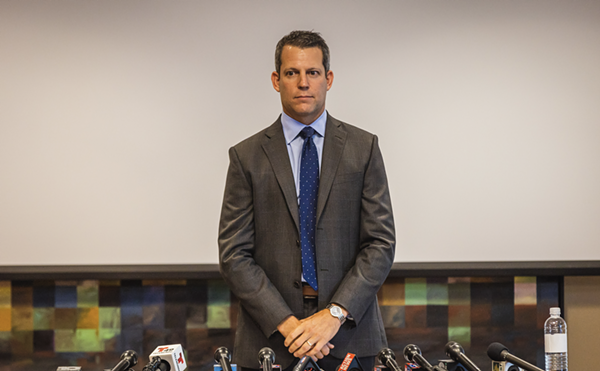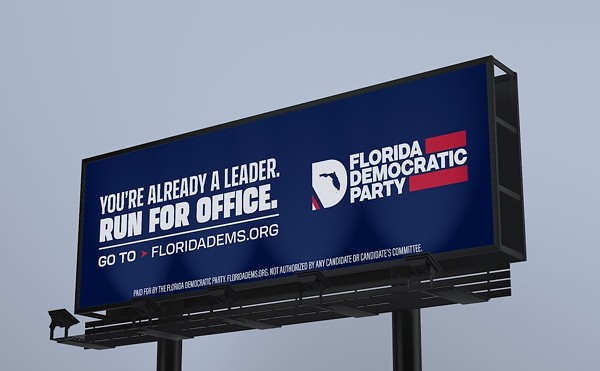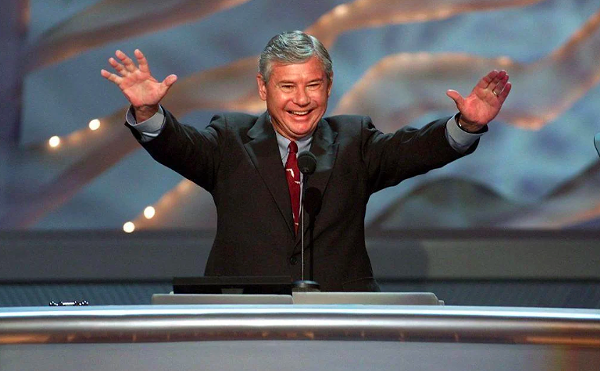Five of the music industry's largest distributors and three major retailers have settled 2-year-old allegations of price-fixing.EMI Music Distribution, Warner-Elektra-Atlantic Corp., Sony Music Entertainment Inc., Universal Music Group and Bertelsmann Music Group Inc. were accused of conspiring with retailers Trans World Entertainment Corp. (owner of the FYE music-store chain), MTS Inc./Tower Records and MusicLand Group Inc. (owner of Sam Goody) to prevent clearinghouses like Target and Wal-Mart from offering recorded music at lower cost.
Florida Attorney General Bob Butterworth was among dozens of state prosecutors who filed antitrust complaints in Manhattan federal court in 2000.
The complaints focused on agreements between the parties regarding what is known as co-op advertising. Retailers are routinely reimbursed in part or whole by distributors for local, regional and national ads prominently displaying featured products at sale prices.
According to the complaints, from 1995 to 2000, the defendants established a policy wherein retailers that advertised prices below those prescribed by the distributors would not be compensated for their ads.
For instance, if Best Buy decided to sell a new release for $9.98 rather than a "suggested price" of $14.98, the retailer would eat the cost of all advertising. Compliant retailers would receive monetary assistance with their ads.
"These policies were designed to prevent certain retailers from offering truly competitive pricing on prerecorded music," said Butterworth in a press release announcing the settlement earlier this fall. "The net result was less competition and higher prices for consumers."
In the settlement, the companies admitted no wrongdoing. But they agreed to distribute $67-million in partial consumer refunds nationwide, as well as provide more than five-million compact discs to libraries, nonprofit organizations and schools.
While the particulars about who is eligible for refunds have yet to be determined, it is estimated that music fans will receive between $5 and $20 each, depending on how many actually apply.
The outcome was immediately hailed as a victory for the consumer, not to mention yet another blow to the music industry's tattered credibility. This particular wing of the entertainment business has been increasingly portrayed as a greedy, incompetent and largely obsolete piece of machinery, far more concerned with reaping profits than providing quality product at quasi-reasonable prices.
And with CD prices in some stores rising to hover near $20, while the average price of new technology like DVDs continues to drop, it's easy to subscribe to that perception. Especially when one takes into consideration how much it actually costs to produce that little round piece of digitally encoded plastic.
"I would say around $1.70, $1.80 approximately," says Joran Oppelt, a production manager at multimedia solutions company Total Media. "That's, like, color on the outside, black and white on the inside, color printing on the CD itself, a standard silk-screened CD job."
In addition to his day job, Oppelt is also the singer for local band The Gita and president of fledgling Clearwater independent label Mekka Records.
Oppelt is talking about what it costs him, or any other local artist for that matter, per disc for a duplication run of 1,000 decent-looking CDs — Shrink-wrap, jewel case and all.
With a label, many other costs — from actual recording to promotion — are factored into the price of a CD. Oppelt estimates that with such sundries as stickers, catalogs and print ads, he drops a little more than three bucks into every Mekka disc.
But a major label charges a large percentage of those expenses back to the artist as recoupable expenses. With the massive numbers in which they deal, major labels' unit cost is comparatively low — 1,000 units or 100,000, it's definitely a sliding scale.
Mekka charges around $10.98 at the retail end and its artists see nearly 60 percent of that. That's roughly 10 times what a new artist on a major label gets in royalties. Mekka does so, however, without benefit of the industry's labyrinthine distribution process.
"It's changing a lot as far as there being a middle-man area of distribution. There are so many places along the path now," says Oppelt. "It's almost understandable [to charge more] by the time you get to the mall, and eight people have touched it.
Still, $18 for a CD is pretty exorbitant. "The last time I paid $18 for a CD was — I can't even tell you. It's just stupid. A regular disc should be, like, $13.99 tops, when you're talking big names, Metallica, Kid Rock, Aerosmith."
Nobody's disputing the fact that prices for major-label CDs, the ones that get most heavily marketed, seem inordinately high. But voices in support of the policies attacked in the antitrust complaints are coming from some surprising quarters.
Independent retailers believe the distributors named in the complaints were acting in the interest of the marketplace and their portrayal as price-gouging extortionists is woefully shortsighted.
"It's another bad card in the campaign to make the industry look like the bad guys," says Sandy Bitman, who has owned Central Florida independent music retailer Park Avenue CDs for five years. Bitman recently took over Clearwater indie store Planet Grooves.
"On one hand, the Federal Trade Commission did right, but at the same time, the intent, which was to keep the industry healthy, isn't being looked at as a whole," says Bitman. "I think in a way it helped protect us, those who can't afford to be a Best Buy, sell below cost and still keep the lights on."
But Bitman believes that the root of the distributors' policy was benefiting the consumer and ensuring competition, in terms of availability and options.
Though big stores like Kmart, Target and Wal-Mart are where the majority of pedestrian music fans shop, their selections are severely limited. Wal-Mart even refuses to carry titles adorned with parental advisory warnings.
Such department stores are severely undercutting independent retailers that cater to fans of discriminating tastes but can't match chain discounts. By assisting independents with co-op advertising that big chains couldn't get for selling below cost, the distributors may have leveled the playing field a bit.
That's the theory. Even so, independents that do most of their business in more esoteric and underground titles didn't benefit. "We never got that much co-op advertising to begin with," Bitman says with a laugh.
Bitman goes on to point out that the music-pricing agreements under fire have been standard operating procedure for film distributors and book publishers for years — and have gone uninvestigated.
"The mainstream news outlets jump all over it as the record company being the big ad wolf, and when you compare the markup on movies or other forms of media, the markup on music is so low as it is, retailers are struggling to make ends meet," Bitman says. "It solidifies in the consumer's mind that the whole thing is about ripping off the music fan, and that's not it at all. There are certainly those out there who do it, but the whole issue, I think, was to protect the health of the industry."
With music sales at an all-time low, and continuing to drop, only time will reveal the effects of terminating these corporate policies.
The overriding sentiment seems to be that the antitrust defendants engaged in some questionable pricing shenanigans. But the notion that it was for the good of an obviously ailing industry has its champions.
The public will surely continue to demonize the industry, if only to rationalize an ever-intensifying love affair with CD burners and ostensibly illicit mp3s.
Then again, if consumers head into their local SuperDiscountMart someday soon in search of an obscure independent disc — because all the mom-and-pop stores are out of business — and can't find it among the hip-hop and adult alternative sections, they'll probably blame the industry for that too.
Contact Staff Writer Scott Harrell at 813-248-8888, ext. 109 or scott [email protected].


















